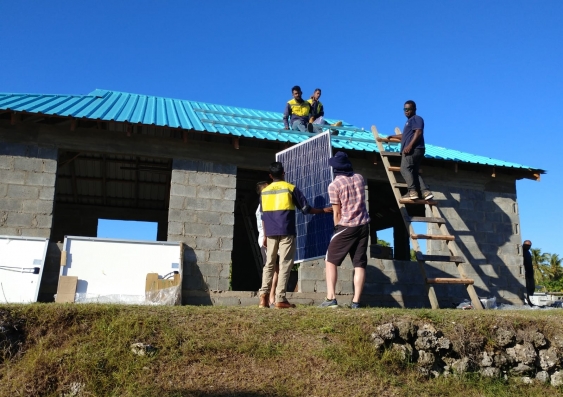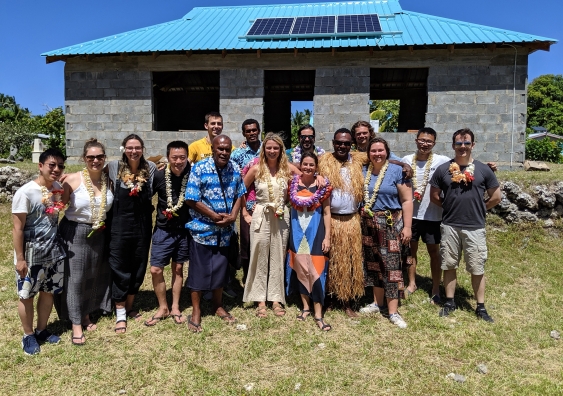University of New South Wales (UNSW) students participating in UNSW Engineering’s Sustainable Energy for Developing Countries course were challenged with designing a solar system that is technically and financially sustainable for remote villages in Fiji and came up with innovative solutions.
The UNSW course, which took students to remote villages on Viwa Island and Yanuca Island, aims to introduce students to the numerous technical and non-technical issues to be encountered in the delivery of sustainable energies such as solar PV to remote locations in developing countries.
The main challenge in these remote communities is designing a solar system that is technically and financially sustainable because locals are going to have a limited capacity to maintain the equipment and trained maintenance staff are too far away.
The course is run by Dr Anna Bruce of the School of Photovoltaics and Renewable Energy Engineering. Bruce took her students to the village of Najia on Viwa Island, the outermost island of the Yasawa group. There the students designed and installed a solar-powered deep freezer to enable villagers to freeze the fish they catch to sell on the mainland for more money.
Fourth-year UNSW Renewable Energy Engineering student Sera Tarpis said the crucial part of the solution is to empower the community and allow them to be self-sufficient. “A key learning from this trip has been the importance of engineering design with people in mind, especially for humanitarian engineering,” said Tarpis.
“Having the privilege to ender the community and hear and see the concerns was very illuminating,” continued Tarpis. “It demonstrated the incredible impact a well-designed project can have, but also just how quickly expensive equipment can fall into disuse if not implemented correctly.”
Of course, the trip was not a one-way street of giving and taking, but of sharing. What the UNSW students could offer in photovoltaic know-how, local Najia villagers could repay not only by welcoming students into their communities, but sharing their family values and community relationships, something often undervalued in Sydney life.

This project is just the beginning for both the students and the Najia community. It’s hoped the next group of students will continue to add value and receive value in return. More freezer capacity for fish, clean water, and household electrification or clean cooking would make a positive impact on the village.
These projects, funded by the UNSW Institute for Global Development and the Australian Renewable Energy Agency (ARENA), are part of a wider collaboration between UNSW and the University of South Pacific (USP) which looks to address Fiji’s lack of access to energy services – 20% of Fiji’s rural population doesn’t have access to electricity.
Dr Bruce, along with colleagues Jose Bilbao, Iain MacGill and Atul Raturi, have been busy hosting workshops with stakeholders in utilities companies, government, development partners and aid agencies to better grasp the issues and challenges facing renewable energy integration so that solutions can be created at the point of design.
This content is protected by copyright and may not be reused. If you want to cooperate with us and would like to reuse some of our content, please contact: editors@pv-magazine.com.









By submitting this form you agree to pv magazine using your data for the purposes of publishing your comment.
Your personal data will only be disclosed or otherwise transmitted to third parties for the purposes of spam filtering or if this is necessary for technical maintenance of the website. Any other transfer to third parties will not take place unless this is justified on the basis of applicable data protection regulations or if pv magazine is legally obliged to do so.
You may revoke this consent at any time with effect for the future, in which case your personal data will be deleted immediately. Otherwise, your data will be deleted if pv magazine has processed your request or the purpose of data storage is fulfilled.
Further information on data privacy can be found in our Data Protection Policy.